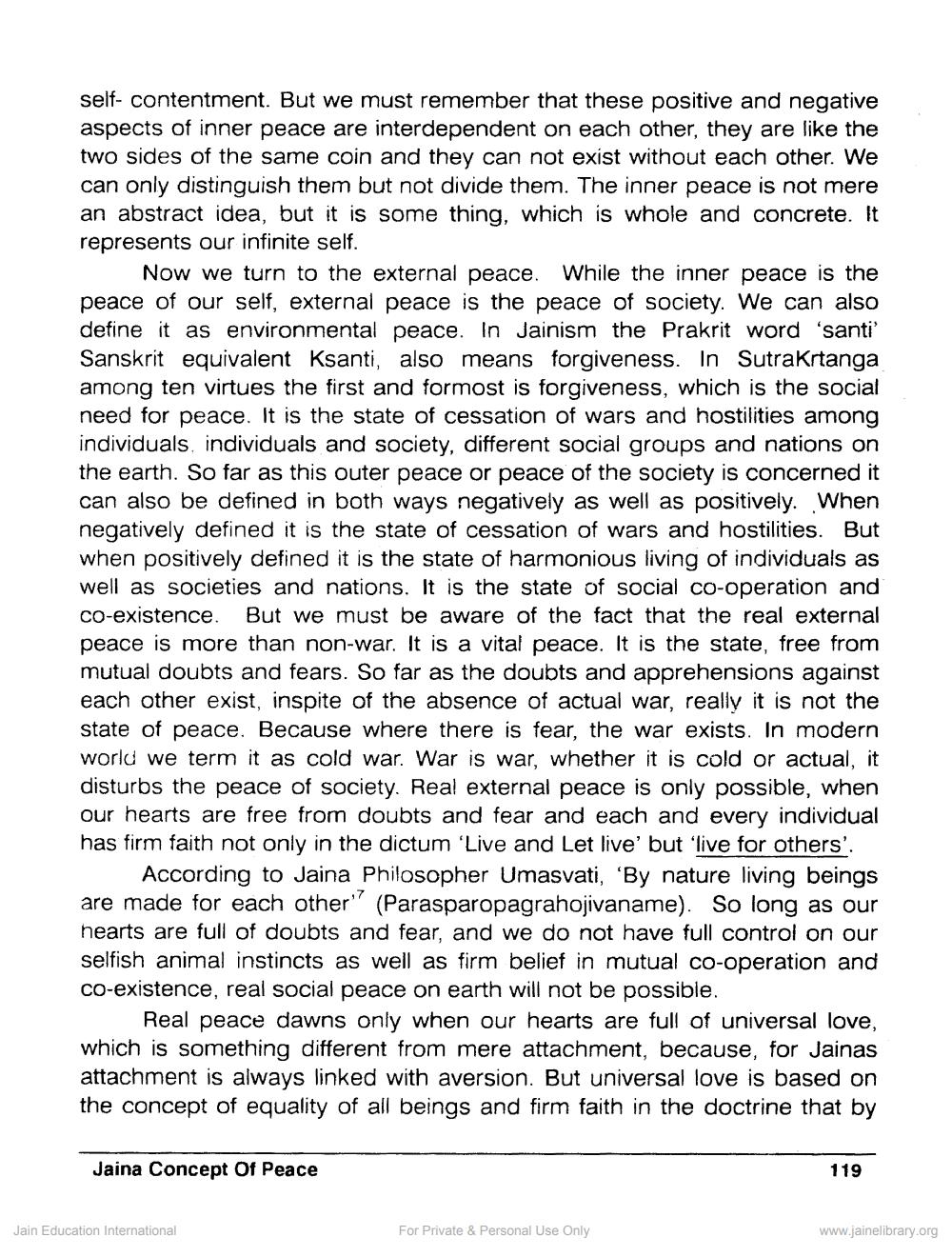Book Title: Jain Concept of Peace Author(s): Sagarmal Jain Publisher: Z_Vijyanandsuri_Swargarohan_Shatabdi_Granth_012023.pdf View full book textPage 4
________________ self-contentment. But we must remember that these positive and negative aspects of inner peace are interdependent on each other, they are like the two sides of the same coin and they can not exist without each other. We can only distinguish them but not divide them. The inner peace is not mere an abstract idea, but it is some thing, which is whole and concrete. It represents our infinite self. Now we turn to the external peace. While the inner peace is the peace of our self, external peace is the peace of society. We can also define it as environmental peace. In Jainism the Prakrit word 'santi' Sanskrit equivalent Ksanti, also means forgiveness. In Sutrakrtanga among ten virtues the first and formost is forgiveness, which is the social need for peace. It is the state of cessation of wars and hostilities among individuals, individuals and society, different social groups and nations on the earth. So far as this outer peace or peace of the society is concerned it can also be defined in both ways negatively as well as positively. When negatively defined it is the state of cessation of wars and hostilities. But when positively defined it is the state of harmonious living of individuals as well as societies and nations. It is the state of social co-operation and co-existence. But we must be aware of the fact that the real external peace is more than non-war. It is a vital peace. It is the state, free from mutual doubts and fears. So far as the doubts and apprehensions against each other exist, inspite of the absence of actual war, really it is not the state of peace. Because where there is fear, the war exists. In modern world we term it as cold war. War is war, whether it is cold or actual, it disturbs the peace of society. Real external peace is only possible, when our hearts are free from doubts and fear and each and every individual as firm faith not only in the dictum 'Live and Let live' but 'live for others' According to Jaina Philosopher Umasvati, 'By nature living beings are made for each other" (Parasparopagrahojivaname). So long as our hearts are full of doubts and fear, and we do not have full control on our selfish animal instincts as well as firm belief in mutual co-operation and co-existence, real social peace on earth will not be possible. Real peace dawns only when our hearts are full of universal love, which is something different from mere attachment, because, for Jainas attachment is always linked with aversion. But universal love is based on the concept of equality of all beings and firm faith in the doctrine that by Jaina Concept Of Peace 119 Jain Education International For Private & Personal Use Only www.jainelibrary.orgPage Navigation
1 2 3 4 5 6 7 8 9 10 11 12 13 14 15 16 17
